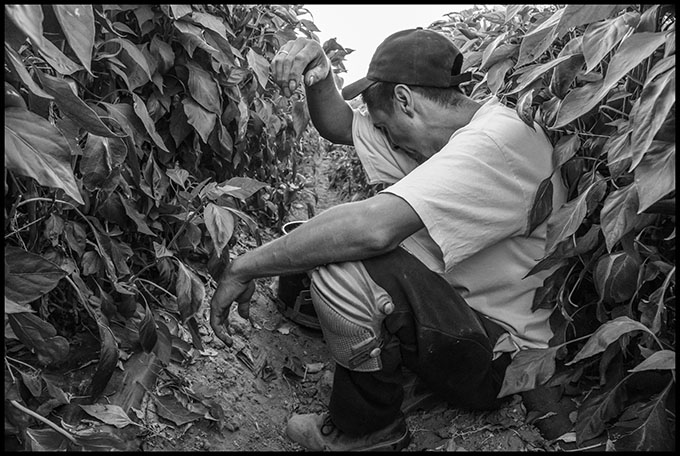Exhibit: Two Years of Heat and COVID in the San Joaquin Valley
By David Bacon
“Two Years of Heat and COVID in the San Joaquin Valley”, Photographs by David Bacon
Opening Reception: Thursday October 13th, 4:30 – 6:00
For more information: Robin DeLugan (rdelugan@ucmerced.edu)
In the San Joaquin Valley, the most productive agricultural area in the world, rural poverty is endemic. That poverty produced COVID infection rates far exceeding, per capita, any urban area in California. Rural communities enduring the pressure of low wages and bad housing became coronavirus hotspots.
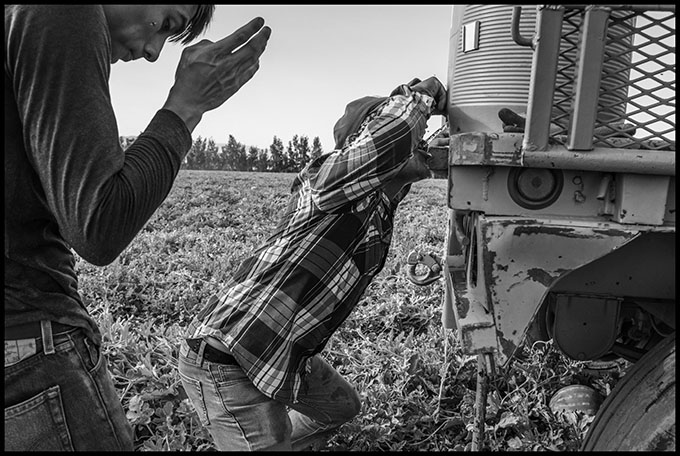
This exhibition presents this complex reality through documentary photographs taken in the course of the pandemic and the past two years’ heat dome crises. They concentrate on the daily lives of farmworkers and their families, including Filipino immigrants and in particular indigenous Mexican migrants, who did the essential labor that ensured that food left the field to supply supermarkets and dinner tables. They also show that while COVID created enormous risks and problems, in many ways people lived in conditions that existed long before the pandemic began.
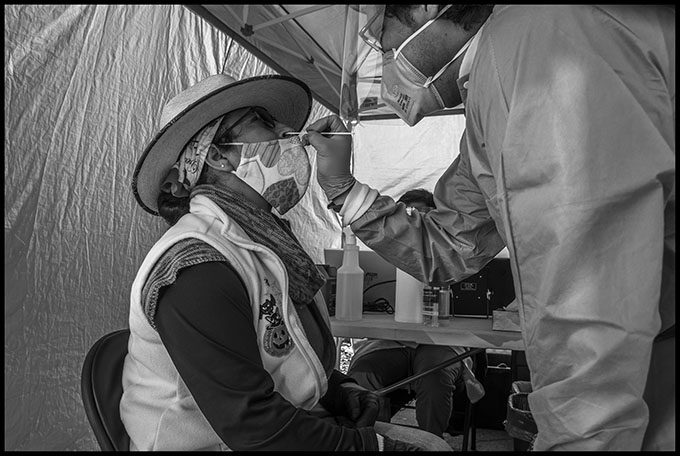
In these images, farmworkers appear masked and exhausted as they pick grapes, pluots and persimmons. The series documents the crisis in rural housing, and the efforts of local communities to build homes using self-help projects. Haunting night photographs taken in Fresno show the streets of San Joaquin Valley’s largest city empty except for people sleeping on sidewalks, or working in taco trucks into the early hours of the morning. Indigenous farmworkers labor as irrigators in 114 degree heat in the sun all day, while crews pick and toss watermelons into trucks—one of the most physically demanding jobs in agriculture. The growing number of H-2A guestworkers are shown both as they harvest cantaloupes in the harsh temperature, and the rundown motels where they’re housed.
The pandemic and the crisis of climate change threw the problems of social injustice in our society into high relief, and I tried to document this reality as I’ve seen it. In May, 2021, the California Newspaper Publishers Association gave its first place awards to this series of images taken in the San Joaquin Valley, and the Los Angeles Press Club gave it a first place in the Southern California Journalism Awards in 2022.
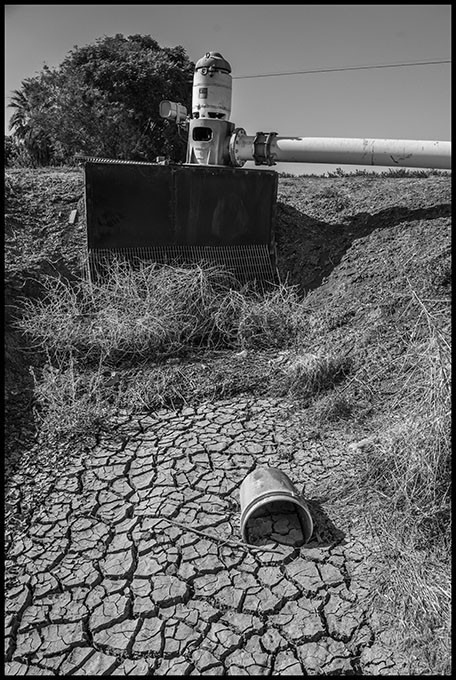
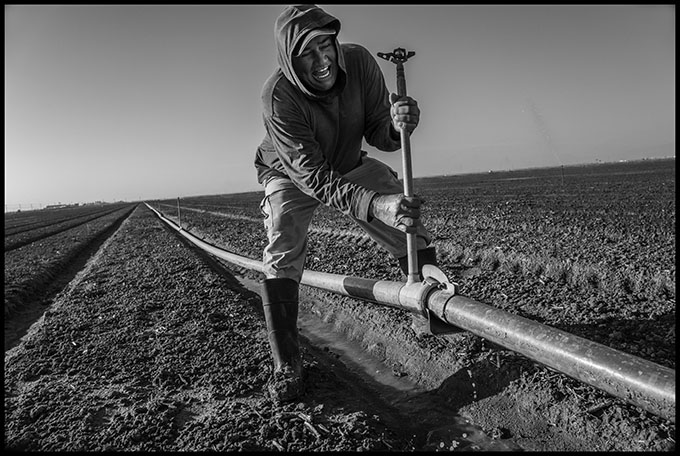
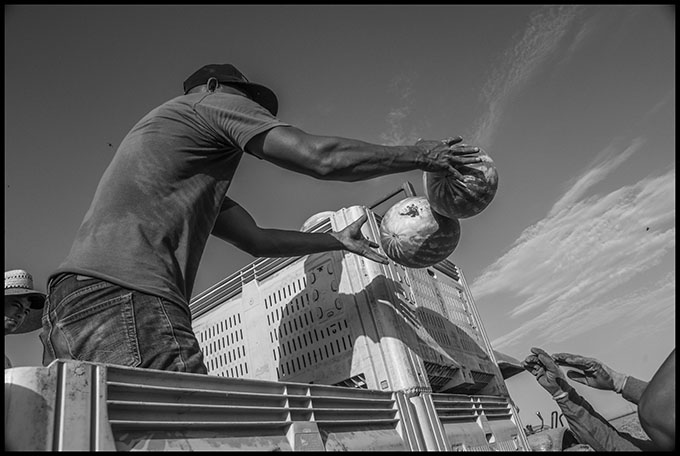
This exhibition consists of 67 black and white photographs and oral histories giving their context. It is a continuation of previous projects that document the lives of indigenous farmworker communities, including Living Under the Trees and In the Fields of the North.
The photographs are produced as a cooperative effort with the Binational Front of Indigenous Organizations (FIOB), the Central Valley Empowerment Alliance, California Rural Legal Assistance, the Leadership Counsel for Justice and Accountability, and the United Farm Workers. The photographs are used by partner organizations in campaigns for immigrant rights and better working and living conditions. Part of this effort includes using the exhibitions to organize dialogues within these communities about indigenous identity and culture, and ways to advocate for equality and social justice as migrant communities in the U.S., opposing an abusive and dysfunctional immigration system.
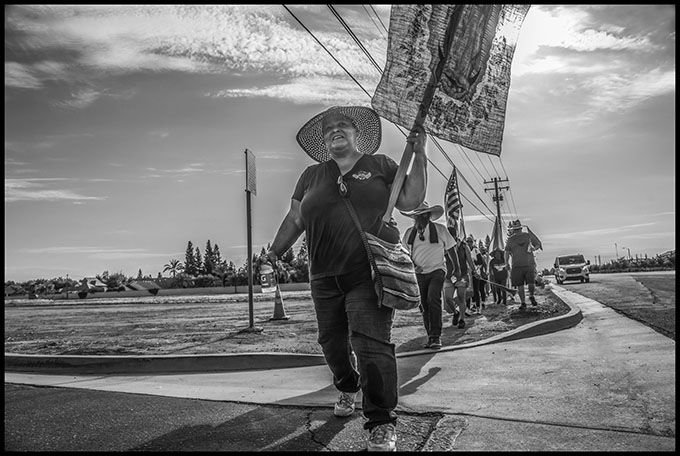
Public support is vital to creating a broad movement for immigrant rights, labor rights, cultural respect and the social justice demands of Mexican indigenous migrant farmworkers. This project is part of that effort, at the same time helping documentary photography survive as a medium for advancing social justice.
…
“Two Years of Heat and COVID in the San Joaquin Valley”, Photographs by David Bacon
October 1 – February 10, 2023
Kolligian Library, 5200 N. Lake Road, 5200 Lake Rd #275, Merced, CA 95343
